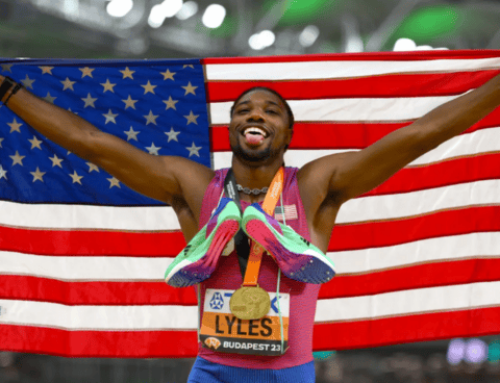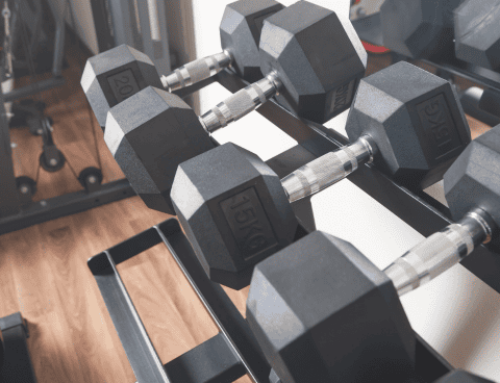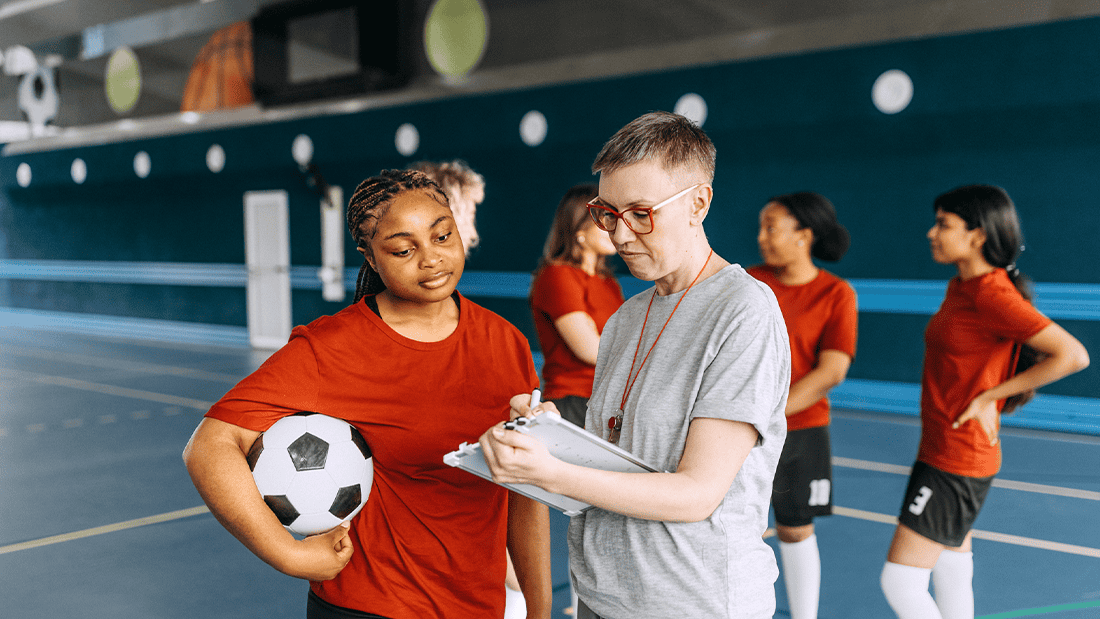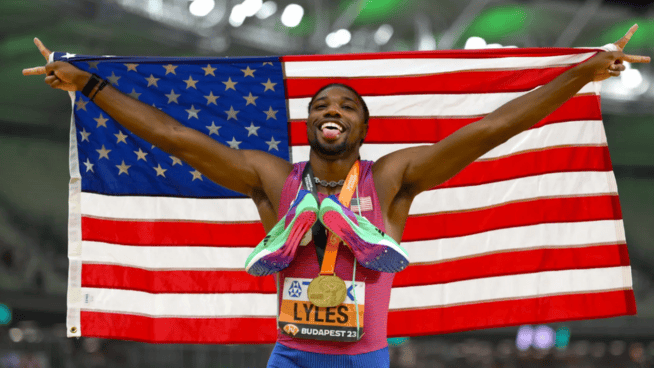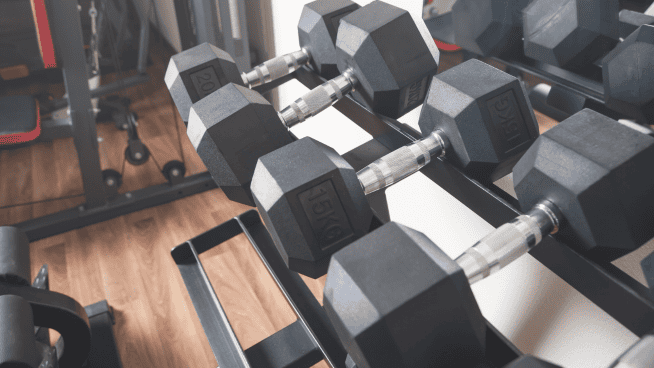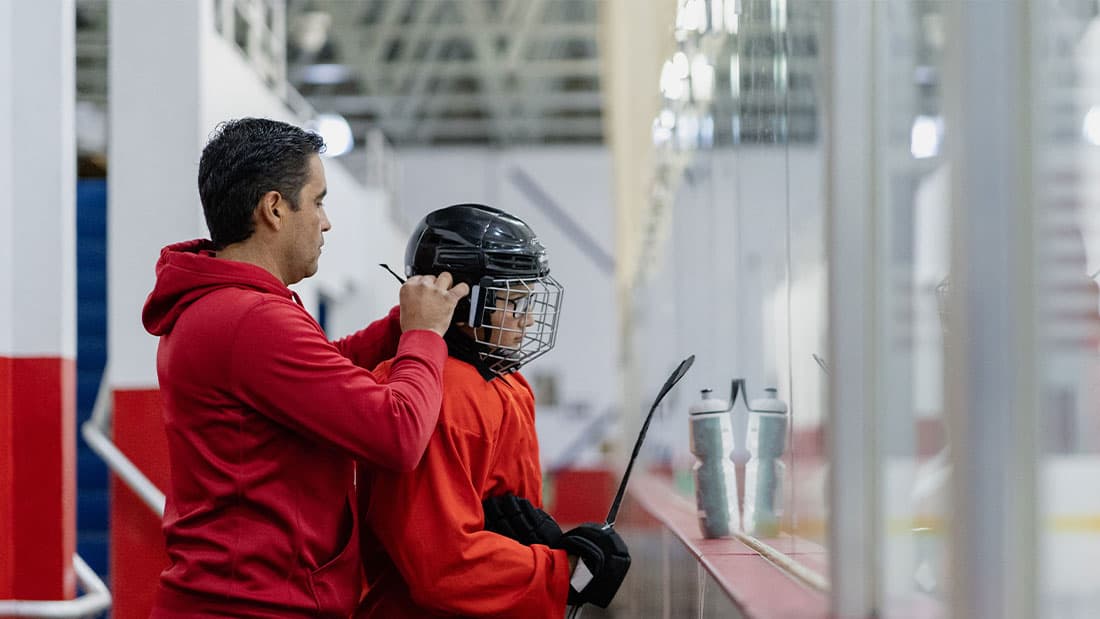Sleep Like a Baby, Perform Like a Superstar
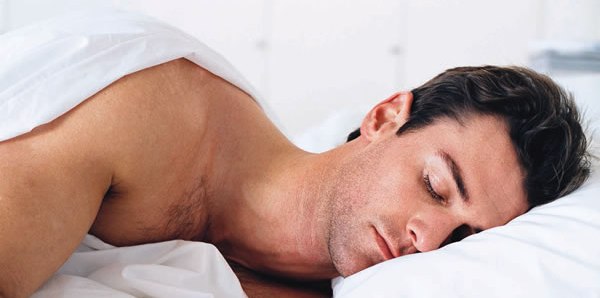
It’s Friday night and all your friends are heading to the late night movie. Your team has a tournament tomorrow, but hey, no problem, you can sleep on the bus, right? Wrong!
Even when you dedicate time at the gym and eat the right things at the right times, when you miss out on sleep, you lose out on recovery. And when it’s game day, your performance will be lacking.
It doesn’t take a rocket scientist to figure out a correlation between poor sleep and diminished athletic performance. Even if you cut your nightly sleep short and add in naps later (like the one on the bus), you’re disrupting your natural circadian rhythm. This rhythm regulates your sleep-wake cycle in line with solar time.[2] The same study suggests performance peaks in the late afternoon or evening. So if you stay up past midnight and sleep until noon the next day, you might never feel fully operational.
Other research suggests a correlation between sleep deprivation and increased risk of Type II diabetes and obesity. One explanation is the negative impact of lack of sleep on the production of leptin and ghreline. Leptin, released from fat cells to decrease hunger and boost metabolism, is greatly reduced by sleep loss. Ghreline, an appetite-boosting hormone, is increased.[3] Ever go a few days without much sleep and feel like you’re always hungry? Not a good combination, especially on game day.
So next time you plan to cut your nightly Z’s to hit the gym or go out partying, remember the consequences. Whether you’re a strength athlete or looking to improve at a particular sport, make every effort to sleep in a little on weekends, and aim for seven or more hours a night during the week. Being consistent with your sleep schedule will not only help you perform, but also be good for your health.
Need help getting to sleep? Check out STACK’s Sleep Guidelines for Athletes.
References
RECOMMENDED FOR YOU
MOST POPULAR
Sleep Like a Baby, Perform Like a Superstar

It’s Friday night and all your friends are heading to the late night movie. Your team has a tournament tomorrow, but hey, no problem, you can sleep on the bus, right? Wrong!
Even when you dedicate time at the gym and eat the right things at the right times, when you miss out on sleep, you lose out on recovery. And when it’s game day, your performance will be lacking.
It doesn’t take a rocket scientist to figure out a correlation between poor sleep and diminished athletic performance. Even if you cut your nightly sleep short and add in naps later (like the one on the bus), you’re disrupting your natural circadian rhythm. This rhythm regulates your sleep-wake cycle in line with solar time.[2] The same study suggests performance peaks in the late afternoon or evening. So if you stay up past midnight and sleep until noon the next day, you might never feel fully operational.
Other research suggests a correlation between sleep deprivation and increased risk of Type II diabetes and obesity. One explanation is the negative impact of lack of sleep on the production of leptin and ghreline. Leptin, released from fat cells to decrease hunger and boost metabolism, is greatly reduced by sleep loss. Ghreline, an appetite-boosting hormone, is increased.[3] Ever go a few days without much sleep and feel like you’re always hungry? Not a good combination, especially on game day.
So next time you plan to cut your nightly Z’s to hit the gym or go out partying, remember the consequences. Whether you’re a strength athlete or looking to improve at a particular sport, make every effort to sleep in a little on weekends, and aim for seven or more hours a night during the week. Being consistent with your sleep schedule will not only help you perform, but also be good for your health.
Need help getting to sleep? Check out STACK’s Sleep Guidelines for Athletes.
References
[1] Sigurdson K, Ayas N. “The public health and safety consequences of sleep disorders.” Canadian J Physiol Pharmacol, 2007. [2] Atkinson, G., et al., “Diurnal variation in cycling performance: influence of warm-up.” Journal of Sports Sciences, 2005. [3] Spiegel, K., et al., “Brief communication: Sleep curtailment in healthy young men is associated with decreased leptin levels, elevated ghrelin levels, and increased hunger and appetite.” Annals of Internal Medicine, 2004.



